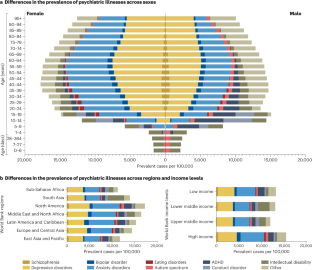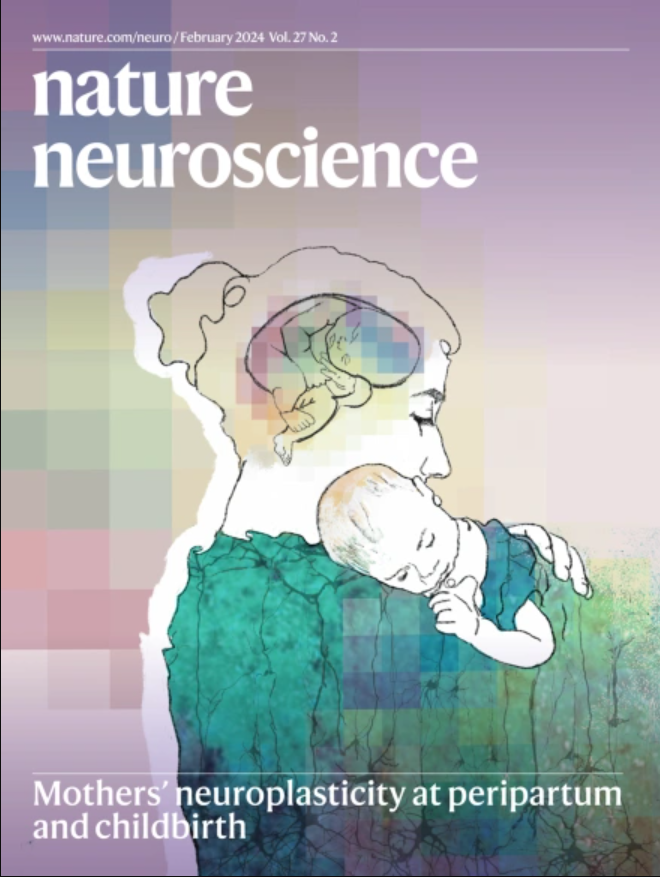考虑到神经影像学研究中社会身份的相互联系性质
IF 21.2
1区 医学
Q1 NEUROSCIENCES
引用次数: 0
摘要
复杂的人类行为在认知、人格和心理健康领域的表达存在相当大的异质性。越来越明显的是,行为表达的个体差异在很大程度上受到社会人口因素的影响,这些因素往往与生活经历相互作用。在这里,我们正式解决了将交叉身份纳入行为神经影像学研究的迫切需要,重点是心理健康研究。我们强调不同的社会人口因素如何影响精神疾病的研究,重点关注这些因素之间的相互作用如何有助于脑生物学和疾病表达,包括患病率、症状负担、寻求帮助、治疗反应和耐受性、复发和缓解。我们最后讨论了与参与者招募,数据采集和数据分析相关的考虑因素和可操作项目,以促进神经成像中不同交叉身份的包含和结合。本文章由计算机程序翻译,如有差异,请以英文原文为准。


Considering the interconnected nature of social identities in neuroimaging research
Considerable heterogeneity exists in the expression of complex human behaviors across the cognitive, personality and mental health domains. It is increasingly evident that individual variability in behavioral expression is substantially affected by sociodemographic factors that often interact with life experiences. Here, we formally address the urgent need to incorporate intersectional identities in neuroimaging studies of behavior, with a focus on research in mental health. We highlight how diverse sociodemographic factors influence the study of psychiatric conditions, focusing on how interactions between those factors might contribute to brain biology and illness expression, including prevalence, symptom burden, help seeking, treatment response and tolerance, and relapse and remission. We conclude with a discussion of the considerations and actionable items related to participant recruitment, data acquisition and data analysis to facilitate the inclusion and incorporation of diverse intersectional identities in neuroimaging. Individual variability in behavior is influenced by social identities. Here, Dhamala et al. discuss the need to incorporate social identities in neuroimaging studies of behavior and explore how to foster inclusivity in research.
求助全文
通过发布文献求助,成功后即可免费获取论文全文。
去求助
来源期刊

Nature neuroscience
医学-神经科学
CiteScore
38.60
自引率
1.20%
发文量
212
审稿时长
1 months
期刊介绍:
Nature Neuroscience, a multidisciplinary journal, publishes papers of the utmost quality and significance across all realms of neuroscience. The editors welcome contributions spanning molecular, cellular, systems, and cognitive neuroscience, along with psychophysics, computational modeling, and nervous system disorders. While no area is off-limits, studies offering fundamental insights into nervous system function receive priority.
The journal offers high visibility to both readers and authors, fostering interdisciplinary communication and accessibility to a broad audience. It maintains high standards of copy editing and production, rigorous peer review, rapid publication, and operates independently from academic societies and other vested interests.
In addition to primary research, Nature Neuroscience features news and views, reviews, editorials, commentaries, perspectives, book reviews, and correspondence, aiming to serve as the voice of the global neuroscience community.
 求助内容:
求助内容: 应助结果提醒方式:
应助结果提醒方式:


